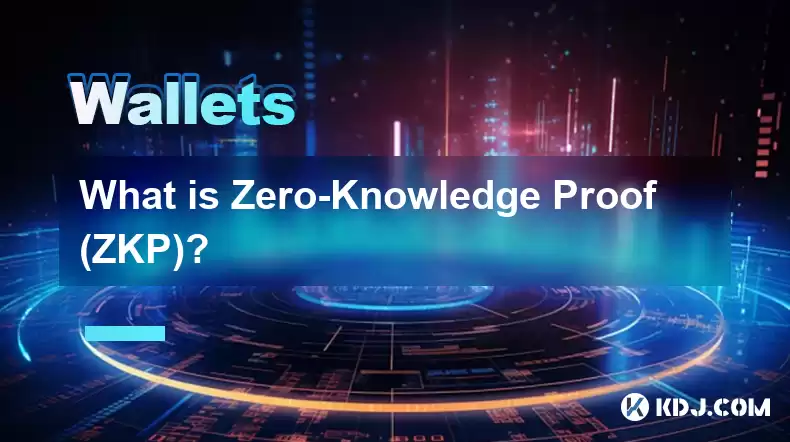-
 Bitcoin
Bitcoin $115000
0.12% -
 Ethereum
Ethereum $3701
4.50% -
 XRP
XRP $3.081
2.99% -
 Tether USDt
Tether USDt $0.0000
-0.01% -
 BNB
BNB $767.9
1.45% -
 Solana
Solana $169.5
3.13% -
 USDC
USDC $0.9999
0.01% -
 Dogecoin
Dogecoin $0.2106
4.30% -
 TRON
TRON $0.3334
1.62% -
 Cardano
Cardano $0.7564
2.54% -
 Stellar
Stellar $0.4165
0.76% -
 Hyperliquid
Hyperliquid $38.75
0.25% -
 Sui
Sui $3.593
3.00% -
 Chainlink
Chainlink $17.08
3.59% -
 Bitcoin Cash
Bitcoin Cash $573.6
4.35% -
 Hedera
Hedera $0.2508
-0.84% -
 Avalanche
Avalanche $23.07
6.46% -
 Ethena USDe
Ethena USDe $1.001
-0.02% -
 Litecoin
Litecoin $120.8
8.17% -
 UNUS SED LEO
UNUS SED LEO $8.943
-0.32% -
 Toncoin
Toncoin $3.400
-5.60% -
 Shiba Inu
Shiba Inu $0.00001255
1.54% -
 Uniswap
Uniswap $9.908
6.32% -
 Polkadot
Polkadot $3.718
2.10% -
 Monero
Monero $303.0
-0.74% -
 Dai
Dai $0.9999
-0.02% -
 Bitget Token
Bitget Token $4.392
0.91% -
 Cronos
Cronos $0.1403
6.31% -
 Pepe
Pepe $0.00001076
1.13% -
 Aave
Aave $267.2
1.80%
What is Zero-Knowledge Proof (ZKP)?
Zero-knowledge proofs, a cryptographic tool, empower one party to demonstrate knowledge of a secret without revealing it, unlocking privacy-enhancing technologies and secure blockchain applications.
Feb 21, 2025 at 11:49 am

Key Points
- Zero-knowledge proofs are a cryptographic technique that allows one party to prove to another party that they know a secret without revealing the secret itself.
- Zero-knowledge proofs have a wide range of applications in cryptography, including privacy-enhancing technologies, anonymity networks, and blockchain.
- Several different types of zero-knowledge proofs exist, each with its own strengths and weaknesses.
What is Zero-Knowledge Proof (ZKP)?
A zero-knowledge proof (ZKP) is a cryptographic technique that allows one party (the prover) to prove to another party (the verifier) that they know a secret without revealing the secret itself. This is done by using a series of mathematical puzzles and challenges.
ZKPs have a wide range of applications in cryptography, including:
- Privacy-enhancing technologies: ZKPs can be used to create privacy-enhancing technologies that allow users to protect their sensitive data from unauthorized access. For example, ZKPs can be used to develop anonymous credentials that allow users to prove their identity without revealing their personal information.
- Anonymity networks: ZKPs can be used to create anonymity networks that allow users to communicate with each other without revealing their identities. For example, ZKPs can be used to develop onion routing networks, which allow users to send messages anonymously over the internet.
- Blockchain: ZKPs can be used to develop blockchain applications that are more scalable, secure, and private. For example, ZKPs can be used to develop zk-SNARKs, which are a type of ZKP that can be used to verify the validity of blockchain transactions without revealing the details of the transactions.
Types of Zero-Knowledge Proofs
There are several different types of zero-knowledge proofs, each with its own strengths and weaknesses. The most common types of ZKPs include:
- Interactive ZKPs: Interactive ZKPs require the prover and verifier to interact with each other in real time. This type of ZKP is typically used in applications where the verifier needs to be able to verify the prover's knowledge of the secret in a short amount of time.
- Non-interactive ZKPs: Non-interactive ZKPs do not require the prover and verifier to interact with each other in real time. This type of ZKP is typically used in applications where the verifier does not need to be able to verify the prover's knowledge of the secret in a short amount of time.
- Succinct ZKPs: Succinct ZKPs are a type of ZKP that is very efficient to verify. This type of ZKP is typically used in applications where the verifier needs to be able to verify the prover's knowledge of the secret many times.
How Zero-Knowledge Proofs Work
Zero-knowledge proofs work by using a series of mathematical puzzles and challenges. The prover generates a set of puzzles that the verifier must solve. The verifier then checks the prover's solutions to the puzzles to ensure that they are correct. If the prover's solutions are correct, the verifier is convinced that the prover knows the secret.
The following is a simplified example of how a zero-knowledge proof works:
- The prover generates a secret number.
- The prover generates a set of puzzles that are based on the secret number.
- The prover sends the puzzles to the verifier.
- The verifier solves the puzzles.
- The verifier checks the prover's solutions to the puzzles to ensure that they are correct.
If the prover's solutions are correct, the verifier is convinced that the prover knows the secret number. However, the verifier does not learn anything about the secret number itself.
Benefits of Zero-Knowledge Proofs
Zero-knowledge proofs have several benefits, including:
- Privacy: ZKPs allow users to prove their knowledge of a secret without revealing the secret itself. This can be very useful in applications where users need to protect their sensitive data from unauthorized access.
- Security: ZKPs are very secure. They are based on sound mathematical principles, and they have been proven to be resistant to attack.
- Efficiency: ZKPs are very efficient. They can be verified very quickly, even on low-powered devices.
FAQs
Q: What are some of the applications of zero-knowledge proofs?
A: Zero-knowledge proofs have a wide range of applications in cryptography, including privacy-enhancing technologies, anonymity networks, and blockchain.
Q: What are the different types of zero-knowledge proofs?
A: The most common types of zero-knowledge proofs include interactive ZKPs, non-interactive ZKPs, and succinct ZKPs.
Q: How do zero-knowledge proofs work?
A: Zero-knowledge proofs work by using a series of mathematical puzzles and challenges. The prover generates a set of puzzles that the verifier must solve. The verifier then checks the prover's solutions to the puzzles to ensure that they are correct. If the prover's solutions are correct, the verifier is convinced that the prover knows the secret.
Q: What are the benefits of zero-knowledge proofs?
A: Zero-knowledge proofs have several benefits, including privacy, security, and efficiency.
Disclaimer:info@kdj.com
The information provided is not trading advice. kdj.com does not assume any responsibility for any investments made based on the information provided in this article. Cryptocurrencies are highly volatile and it is highly recommended that you invest with caution after thorough research!
If you believe that the content used on this website infringes your copyright, please contact us immediately (info@kdj.com) and we will delete it promptly.
- Bitcoin, Fed Rate Cut, and Crypto Stocks: A New Yorker's Take
- 2025-08-05 14:50:12
- Police, Cryptocurrency, Bitcoin Windfall: Unexpected Gains and Cautionary Tales
- 2025-08-05 15:30:12
- MAGACOIN: The Next Shiba Inu ROI? A Crypto Presale Deep Dive
- 2025-08-05 15:30:12
- Bitcoin, Kiyosaki, and the August Curse: Will History Repeat?
- 2025-08-05 14:50:12
- Crypto Airdrops: Your August 2025 Guide to Free Tokens & Opportunities
- 2025-08-05 13:45:13
- Luxury Dining Reimagined: St. Regis Singapore & Marriott's Culinary Celebration
- 2025-08-05 13:45:13
Related knowledge

How to add TRC20 token to Trust Wallet?
Aug 04,2025 at 11:35am
Understanding TRC20 and Trust Wallet CompatibilityTrust Wallet is a widely used cryptocurrency wallet that supports multiple blockchain networks, incl...

What is a watch-only wallet in Trust Wallet?
Aug 02,2025 at 03:36am
Understanding the Concept of a Watch-Only WalletA watch-only wallet in Trust Wallet allows users to monitor a cryptocurrency address without having ac...

Why can't I connect my Trust Wallet to a DApp?
Aug 04,2025 at 12:00pm
Understanding DApp Connectivity and Trust WalletConnecting your Trust Wallet to a decentralized application (DApp) is a common process in the cryptocu...

How to fix a stuck pending transaction in Trust Wallet?
Aug 03,2025 at 06:14am
Understanding Why Transactions Get Stuck in Trust WalletWhen using Trust Wallet, users may occasionally encounter a pending transaction that appears t...

What is a multi-coin wallet in Trust Wallet?
Aug 03,2025 at 04:43am
Understanding Multi-Coin Wallets in Trust WalletA multi-coin wallet in Trust Wallet refers to a digital wallet that supports multiple cryptocurrencies...

How to switch between networks in Trust Wallet?
Aug 02,2025 at 12:36pm
Understanding Network Switching in Trust WalletSwitching between networks in Trust Wallet allows users to manage assets across different blockchains s...

How to add TRC20 token to Trust Wallet?
Aug 04,2025 at 11:35am
Understanding TRC20 and Trust Wallet CompatibilityTrust Wallet is a widely used cryptocurrency wallet that supports multiple blockchain networks, incl...

What is a watch-only wallet in Trust Wallet?
Aug 02,2025 at 03:36am
Understanding the Concept of a Watch-Only WalletA watch-only wallet in Trust Wallet allows users to monitor a cryptocurrency address without having ac...

Why can't I connect my Trust Wallet to a DApp?
Aug 04,2025 at 12:00pm
Understanding DApp Connectivity and Trust WalletConnecting your Trust Wallet to a decentralized application (DApp) is a common process in the cryptocu...

How to fix a stuck pending transaction in Trust Wallet?
Aug 03,2025 at 06:14am
Understanding Why Transactions Get Stuck in Trust WalletWhen using Trust Wallet, users may occasionally encounter a pending transaction that appears t...

What is a multi-coin wallet in Trust Wallet?
Aug 03,2025 at 04:43am
Understanding Multi-Coin Wallets in Trust WalletA multi-coin wallet in Trust Wallet refers to a digital wallet that supports multiple cryptocurrencies...

How to switch between networks in Trust Wallet?
Aug 02,2025 at 12:36pm
Understanding Network Switching in Trust WalletSwitching between networks in Trust Wallet allows users to manage assets across different blockchains s...
See all articles

























































































